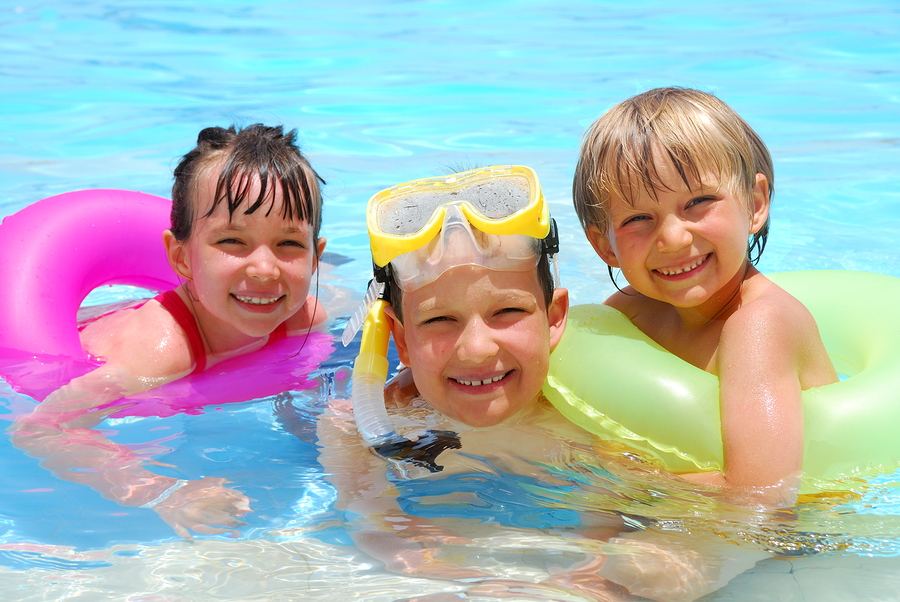
Here in Australia, we have an envious climate, and we are surrounded by some of the worlds most stunning beaches and waterways. Because of this, many spend their spare time enjoying the sunshine around the water. It’s a part of the Aussie lifestyle and learning to swim is a necessary life skill that every child should be taught. Learning to swim not only ensures your child is safe around water, but it also hosts an array of benefits. Here we’ll run through 5 reasons why it’s so important for your child to learn to swim:
Prevents Drowning
There aren’t too many children who don’t love swimming or playing in water and while it is fun and enticing, it does come with inherent risks. Drowning is one of the leading causes of death amongst children here in Australia despite mandatory pool fencing and learn to swim campaigns. It continues to be a prevalent issue that can be avoided. Teaching your child to swim will give them the skills they need to be able to get to the side of the pool if they accidentally fall in. Children that participate in regular formal swimming lessons are 88% less likely to experience a drowning incident. In swimming lessons, they will also learn about pool safety and how to be safe when around the water.

Keeps Them Fit and Healthy
It’s no secret that childhood obesity is a problem not only here in Australia but across the globe. Lack of activity and the reliance on devices contributes significantly to the issue. The great thing about swimming is it can be done by anyone at any age and skill set. Many children associate swimming with fun rather than exercise and don’t even realise they are getting in a workout. It is an all-inclusive activity that works the entire body and can improve cardiovascular health. Swimming often can promote muscle growth and improve hand-eye coordination. Skills learned through swimming can improve their motor skills making it easier to complete tasks. The smallest of coordination movements can greatly enhance a child’s development.
Can Help to Boost their Confidence
We all want to raise confident, happy humans and swimming is a great way to help with that. Research shows that learning to swim from a young age can boost confidence and help them to communicate and socialise with others. Not only that, but children who can swim are more independent and are more confident in Their decision-making abilities.
Can Promote a More Restful Night Sleep
Having a quality nights sleep is vital for maintaining attention during the day, learning, behaviour and so much more. Swimming exerts a lot of physical energy, it regulates breathing, stimulates brain chemicals, and stretches the body. All these combined will result in a deeper, more restful sleep for your little one, leaving them refreshed and ready to tackle the day ahead.
May Boost Cognitive Development
Swimming uses bilateral cross-patterning motions which can boost neuron growth in the brain. This can assist with things such as communication, language development, spatial awareness and numeracy and literacy skills.
What Do They Need to Learn?
How old your child is will determine what skills they will learn but overall, you can expect your child to learn these skills whilst taking swimming lessons:
- Close their eyes when going underwater
- Hold their breath
- Get to the edge of the pool safely
- Relax and breathe while floating on their backs
- Float and roll
When they get a bit older, the skills advance, and they’ll start to learn:
- Swimming techniques
- The swim float swim method
- Kicking
- Gliding through the water
At What Age Should Children Learn to Swim?
Some choose to enroll their children as little as 6 months whereas others decide to hold off until they are a bit older. Children are all different, what may be a great age to start for one may not be for another. There isn’t a set time that children should learn to swim to reap all the benefits that it can offer, you as the caregiver likely know the child best and will know when a good time for them to start is.
What to Look for in A Swimming Centre?
Not all swim schools are equal and there are a few things to look for to ensure you are sending your child to a quality swim centre. Here’s what they should offer in their curriculum:
- A free trial – While the swim centre may look great, you want to know how they teach swimming to children. This will give you an indication if they are good with kids, engaging, how big the group sizes are if there is any one-on-one time and the skills they share throughout the lesson.
- Qualified swim instructors – All swimming instructors at the centre should be fully qualified. Their certificate of attainment should have been completed through a nationally recognised learn to swim company. In the centre, there should be lifeguards who are First Aid and CPR competent.
- Self-rescue skills – It’s important that your child is shown how to perform self-rescue skills. This enables them to get out of the water using several different scenarios. Older kids should be taught what to do if someone else is in trouble in the water.
- Water safety – A lot of accidents happen from being around water, not all are swimming related. The instructor should teach your child to be safe around water, the dangers it poses and to always ask an adult before going in water of any kind.
Teaching children to swim should be a priority for all caregivers. It can reduce their risk of drowning and allows them to enjoy water sports and activities to their fullest.
It’s important to remember that regardless of whether your child can swim or not, they should always be supervised by an adult when in or near water.
Here at Barrier Reef Pools Queensland, swim safety is of uttermost importance and we can all do our part to make sure our kids are safe when swimming. All our pools have built-in safety features such as non-slip surfaces and a child safety ledge for added peace of mind. If you’d like more information, get in touch with our friendly team today.


